Central America
Salvadoran heroes who provided aid in Turkey return home
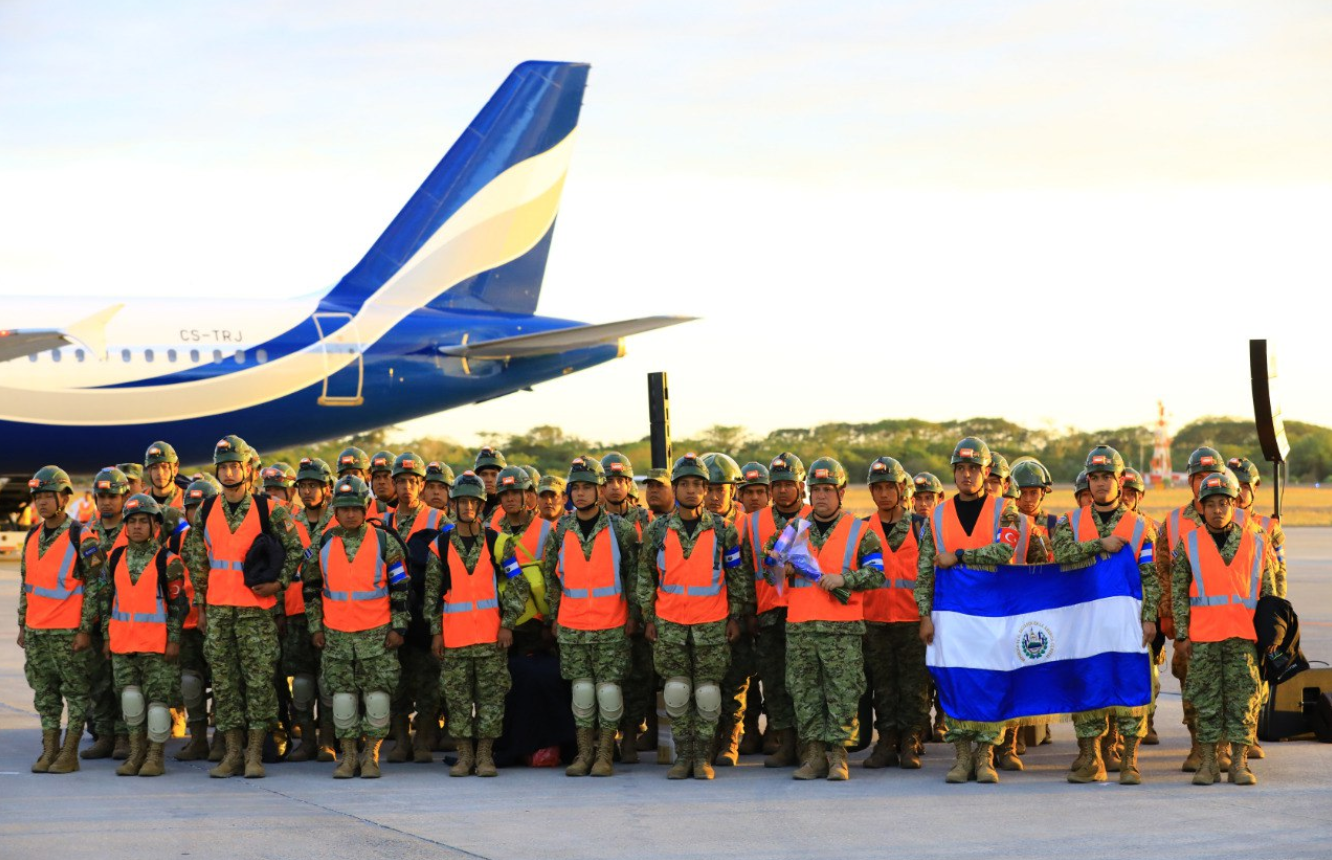
February 19 |
After nine days away from home, the Urban Search and Rescue Team (USAR) El Salvador and the Humanitarian Rescue Unit (HRU) of the Armed Forces, made up of 111 rescuers, military and health personnel, who carried out search and rescue work in Turkey, returned to Salvadoran soil.
This nation was strongly affected last February 6 by two earthquakes of magnitude 7.8 and 7.6 on the Richter scale, and El Salvador was one of the first countries to send rescue support.
The Salvadoran heroes landed on their return flight on Saturday afternoon at the San Oscar Arnulfo Romero International Airport, where they were received by the authorities of the Ministries of the Interior, Defense, Health, the Vice Minister of Foreign Affairs and the directors of Civil Protection and Firefighters.
“Thank you, a great job, it is a pride to work with you, it is a pride to have you at home, welcome heroes”, were the words of the Minister of the Interior, Juan Carlos Bidegain.
He added that thanks to the work done, El Salvador was able to demonstrate in Turkey that it has highly prepared teams that have now been placed among the elite USAR teams around the world.
“We are the ones who are grateful to you, what you have done, what you have done is incredible, what you have done is wonderful,” said Bidegain.
For his part, Erick Vázquez, lieutenant of the USAR-EL SALVADOR group, in his report to the authorities, highlighted the rescue of two people alive.
“We have done a job with all the logistics involved, we went to put into practice everything we learned. We had the joy of performing two rescues, a minor and a woman of approximately 30 years of age, we are proud to have done it”, celebrated Vázquez.
He explained that during their stay in Turkey, from February 9 to 17, they worked in 15 buildings, in which the canine unit and the rescuers did the work they were assigned to do, earning the respect and admiration of USAR groups from the rest of the world.
“Leaders of other USAR groups around the world have told us that we have positioned ourselves among the best, along with France, Germany and Egypt, among others,” Vazquez said.
The recognition given by the leaders of other USAR groups was also shared by Defense Minister Rene Francis Merino Monroy.
“I want to highlight the level of the two search teams of El Salvador [USAR and UHR] to provide assistance to other countries,” said the official.
At the same time he added: “We have in El Salvador a response team that can highly prepared to help foreign countries”.
Merino Monroy congratulated the USAR and UHR team of the Armed Forces for putting the name of El Salvador on high and fulfilling the mission entrusted to them.
“The mission that was entrusted to them, to the USAR and UHR group of the Armed Forces, to rescue lives was fulfilled, in addition to reviewing and cleaning each of the buildings in which they worked,” said the minister.
Turkey’s ambassador to El Salvador, Gül Büyükerşen, also received the heroes and expressed her gratitude for the support of the Salvadoran teams, as well as to President Nayib Bukele’s willingness to help from the first moment.
“President Nayib Bukele was one of the first leaders who spoke with my president, Recep Tayyip Erdoğan, by phone (after the earthquakes),” said the diplomat.
In addition, he stressed that “El Salvador may be a small country (in territory), but it has a big heart”.
Central America
U.S. revokes visas of top Costa Rican lawmakers and constitutional judge
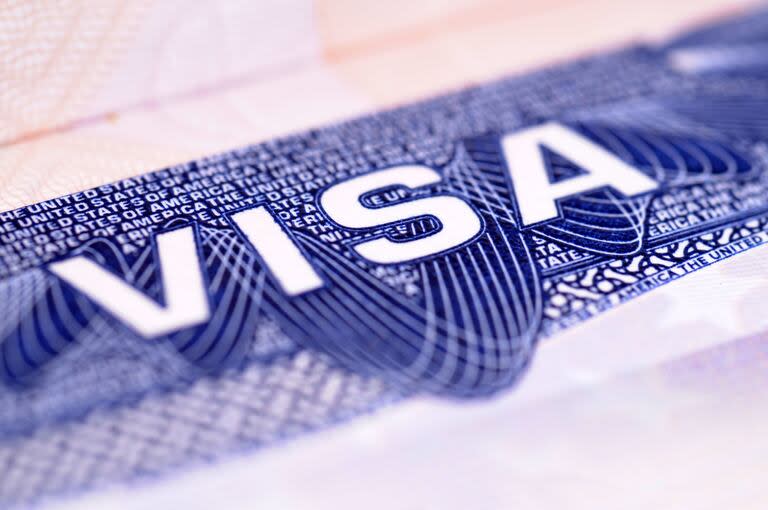
The United States government has revoked the visas of Rodrigo Arias, president of Costa Rica’s Legislative Assembly, and Paul Rueda, a justice of the Constitutional Chamber, expanding the list of Costa Rican officials affected by such measures in 2025.
The Constitutional Chamber confirmed the cancellation of Justice Rueda’s visa but stated it would not issue further comments. Meanwhile, local media reported the case of Rodrigo Arias, who has led the Assembly for the past three years and maintained a critical stance toward President Rodrigo Chaves’s administration.
Visa revocations against Costa Rican political figures began following a visit by U.S. Secretary of State Marco Rubio to San José in February. During the trip, Rubio warned of potential sanctions against those collaborating with foreign actors that could pose a risk to U.S. cybersecurity.
While in Costa Rica, Rubio praised President Chaves for halting Chinese companies’ involvement in major tech infrastructure projects, including the development of 5G networks.
Since then, the U.S. has also revoked visas of lawmakers Francisco Nicolás (National Liberation Party), Johana Obando and Cynthia Córdoba (Progressive Liberal Party), as well as Ana Sofía Machuca, general auditor of the Costa Rican Electricity Institute. All were accused of allegedly favoring Chinese firm Huawei in 5G-related tenders—criticism led by President Chaves and members of his cabinet.
In April, even former president and Nobel Peace Prize laureate Óscar Arias, brother of Rodrigo Arias, had his visa revoked. Arias has publicly criticized the U.S. over its military spending and, more recently, the immigration and trade policies of President Donald Trump.
As with previous cases, the U.S. government has not disclosed the specific reasons behind the visa revocations.
Central America
Guatemala hit by over 300 quakes; death toll rises to seven
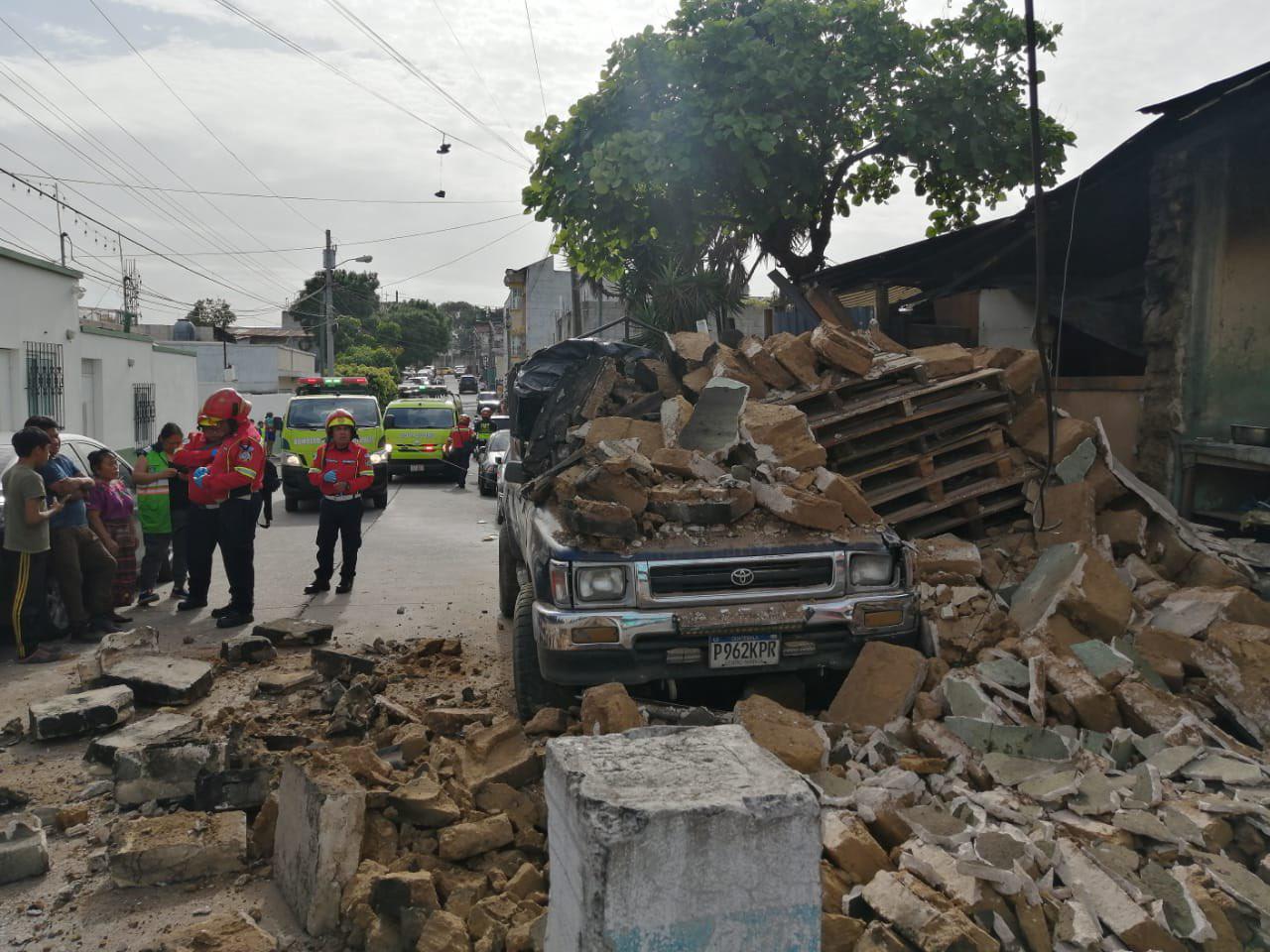
At least seven people have died as a result of a series of earthquakes that have shaken three departments in central Guatemala since Tuesday, according to the National Coordinator for Disaster Reduction (Conred).
In its latest update, Conred reported that 2,138 people have been affected, and 347 have been displaced and are receiving humanitarian assistance.
“Our deepest condolences to the families. There are no words at a time like this, but know that the pain you feel is the pain of the entire Guatemalan people,” said President Bernardo Arévalo, expressing solidarity with the families of the victims. Of the seven deceased, five have been identified, while two remain unidentified as the National Institute of Forensic Sciences (Inacif) continues its work.
To address the emergency, the government has opened nine shelters, currently housing 586 people affected by the tremors.
Since the start of seismic activity, the National Institute for Seismology, Volcanology, Meteorology and Hydrology (Insivumeh) has recorded 340 earthquakes, including 32 in the last few hours, with magnitudes ranging between 1.2 and 5.6.
One of the most severely impacted areas is the Santa María bridge, located at kilometer 39+100 on the road to Palín, Escuintla. Authorities have begun coordinating its repair.
A total of 28 road segments have sustained damage: 11 in Sacatepéquez, 7 in Guatemala, 6 in Chimaltenango, and 4 in Escuintla.
Conred has urged the population to drive cautiously, avoid speeding, take extra care in mountainous areas or on roads with a history of structural issues, and report any emergencies to the 24-hour hotline 119.
Central America
Dengue crisis in Panama: co-circulating serotypes fuel rise in fatal cases
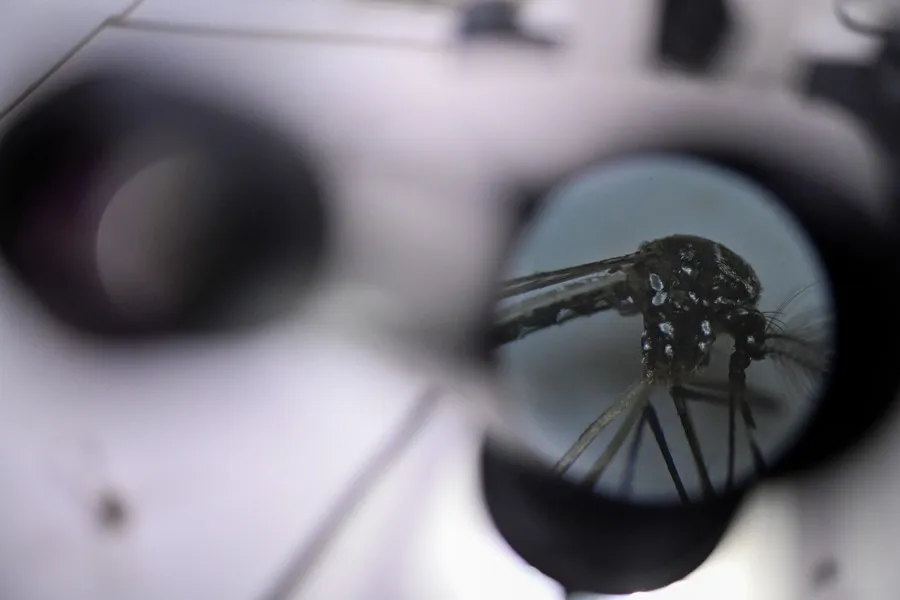
Health authorities in Panama reported on Wednesday that the country has recorded a total of 6,458 dengue cases and 10 related deaths through epidemiological week 25, which spanned from June 15 to 21, 2025.
Of the total reported cases, 576 patients required hospitalization, and 55 cases have been classified as severe, according to a statement released by the Ministry of Health (Minsa).
The metropolitan area and San Miguelito, both in the capital, account for the majority of cases, with 2,753 infections. The reported deaths occurred in the western provinces of Chiriquí (4) and Bocas del Toro (2); the eastern province of Darién (2); and Panamá Este and Coclé, with one death each.
“The national dengue incidence rate during epidemiological week 25 of 2025 is 125.8 cases per 100,000 inhabitants. Most cases have occurred in individuals aged 10 to 59 years,” the official report stated.
Panama is currently experiencing co-circulation of all four dengue serotypes, with DENV-3 and DENV-4 being the most prevalent. This, according to Minsa, “increases the likelihood of severe and fatal cases.”
The Ministry emphasized that dengue is a serious and potentially deadly disease transmitted by the Aedes aegypti mosquito, and noted that it has ramped up nationwide operations through vector control teams to reduce infection rates.
However, officials stressed that citizen participation remains critical, urging the public to eliminate mosquito breeding sites both inside and around their homes.
-
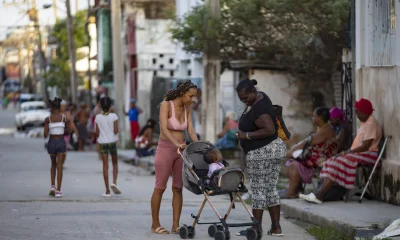
 International3 days ago
International3 days agoCuba confirms 76 femicide cases in 2024, among highest rates in region
-
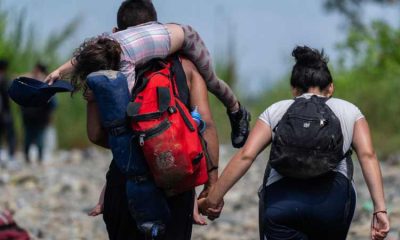
 Central America3 days ago
Central America3 days agoIllegal crossings at U.S.-Mexico border plunge 92% in historic shift
-
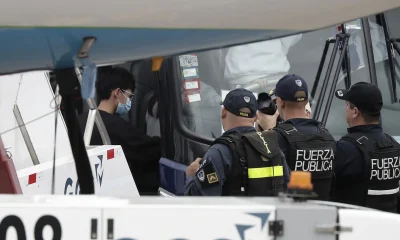
 Central America3 days ago
Central America3 days agoCosta Rica extends humanitarian status and grants work permits to stranded migrants
-
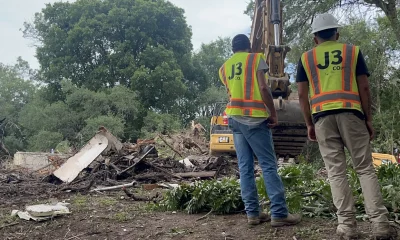
 International3 days ago
International3 days agoU.S. thanks Mexico for sending rescue teams after deadly Texas floods
-
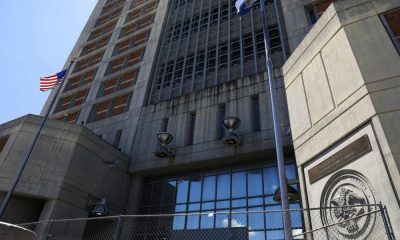
 International4 days ago
International4 days agoDOJ and FBI officially deny Jeffrey Epstein ‘client list’ conspiracy theories
-

 International4 days ago
International4 days agoIranian president says Israel tried to assassinate him, warns U.S. against war
-
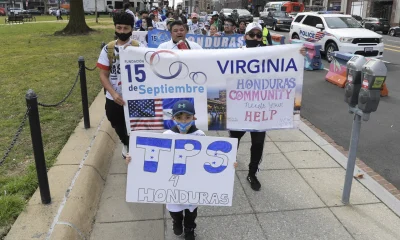
 International4 days ago
International4 days agoHonduras regrets U.S. decision to end TPS for 72,000 hondurans
-

 Central America2 days ago
Central America2 days agoDengue crisis in Panama: co-circulating serotypes fuel rise in fatal cases
-

 International4 days ago
International4 days agoBolsonaro thanks Trump for support amid Brazil coup trial
-

 International4 days ago
International4 days agoSheinbaum urges unity and respect after clashes over gentrification in Mexico City
-
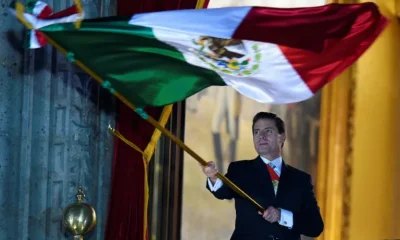
 International3 days ago
International3 days agoMexico launches probe into alleged $25 million bribe to ex-president Peña Nieto
-
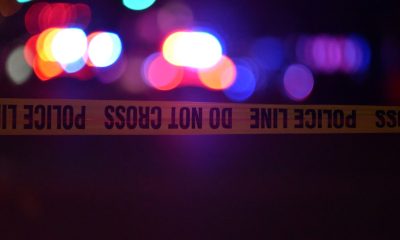
 International4 days ago
International4 days agoGunman killed after shooting outside Texas Border Patrol Building
-
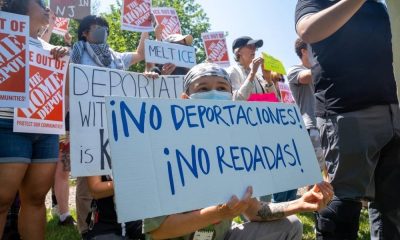
 International2 days ago
International2 days agoICE set to become America’s largest security force under Trump’s $75B immigration overhaul
-
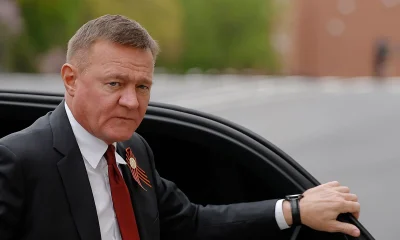
 International4 days ago
International4 days agoRussian ex-transport minister found dead after dismissal by Putin
-
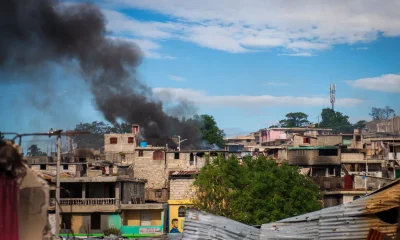
 International4 days ago
International4 days agoTrump ends TPS for haitians as gang violence surges in homeland
-

 International3 days ago
International3 days agoTrump and Bondi slam Epstein inquiry amid Texas flood tragedy
-
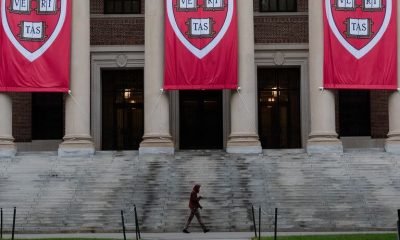
 International2 days ago
International2 days agoHarvard faces Federal pressure over immigration docs, autonomy dispute intensifies
-
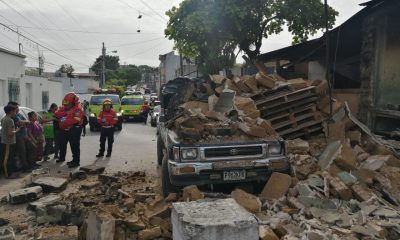
 Central America1 day ago
Central America1 day agoGuatemala hit by over 300 quakes; death toll rises to seven
-

 Central America1 day ago
Central America1 day agoU.S. revokes visas of top Costa Rican lawmakers and constitutional judge
-
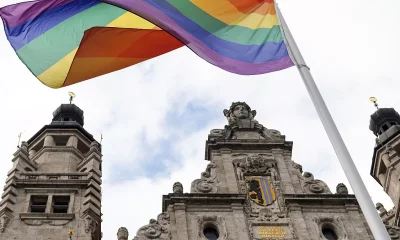
 International1 day ago
International1 day agoGerman parliament orders removal of LGBTQ+ flags amid growing controversy
-
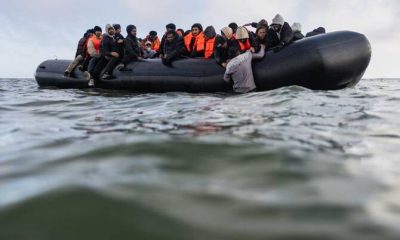
 International1 day ago
International1 day agoUK and France seal innovative migrant exchange deal to curb channel crossings
-

 International1 day ago
International1 day agoFederal judge halts Trump’s order to end birthright citizenship
-
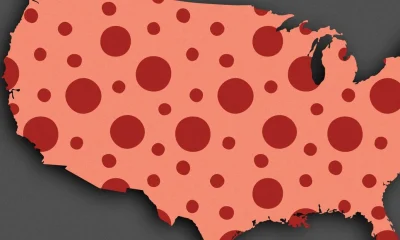
 International1 day ago
International1 day agoCDC reports record measles outbreaks in 39 U.S. jurisdictions this year
-

 International10 hours ago
International10 hours agoSheinbaum slams ICE raids after 355 mexicans detained and 67,000 repatriated
-
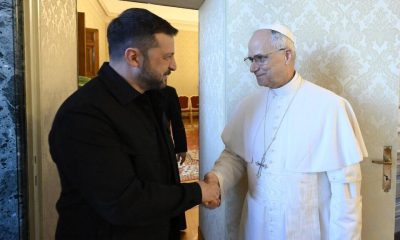
 International1 day ago
International1 day agoUkraine gains $10 billion in commitments during Rome Recovery Forum
-
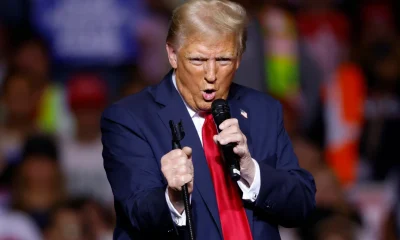
 International1 day ago
International1 day agoSix agents penalized for conduct failures in July 2024 attack on Donald Trump
-

 International10 hours ago
International10 hours agoTrump defends Bolsonaro, hints at talks with Brazil after tariff warning
-
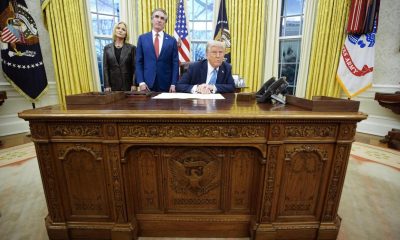
 International10 hours ago
International10 hours agoTrump administration begins downsizing ‘bloated’ state department workforce




















